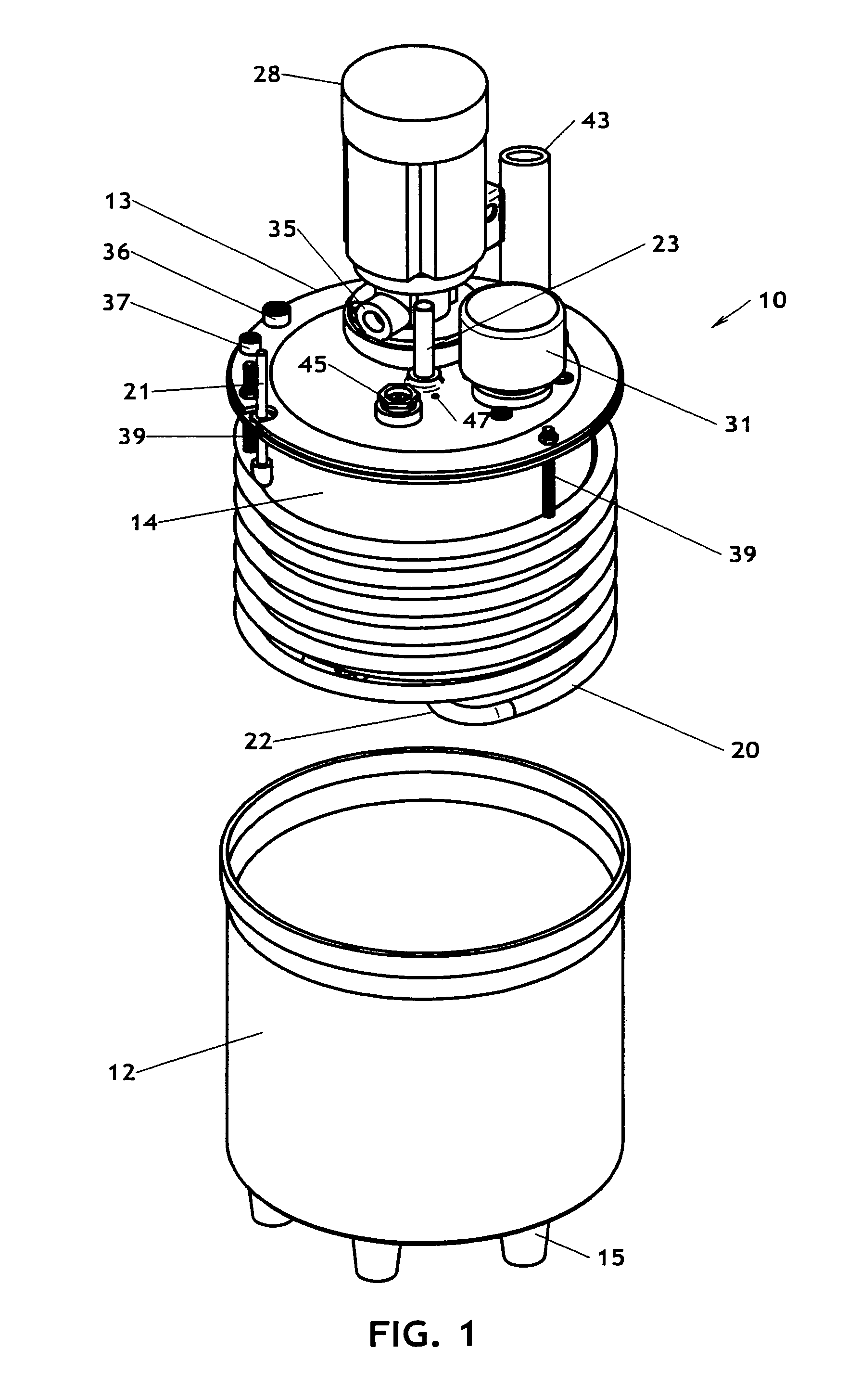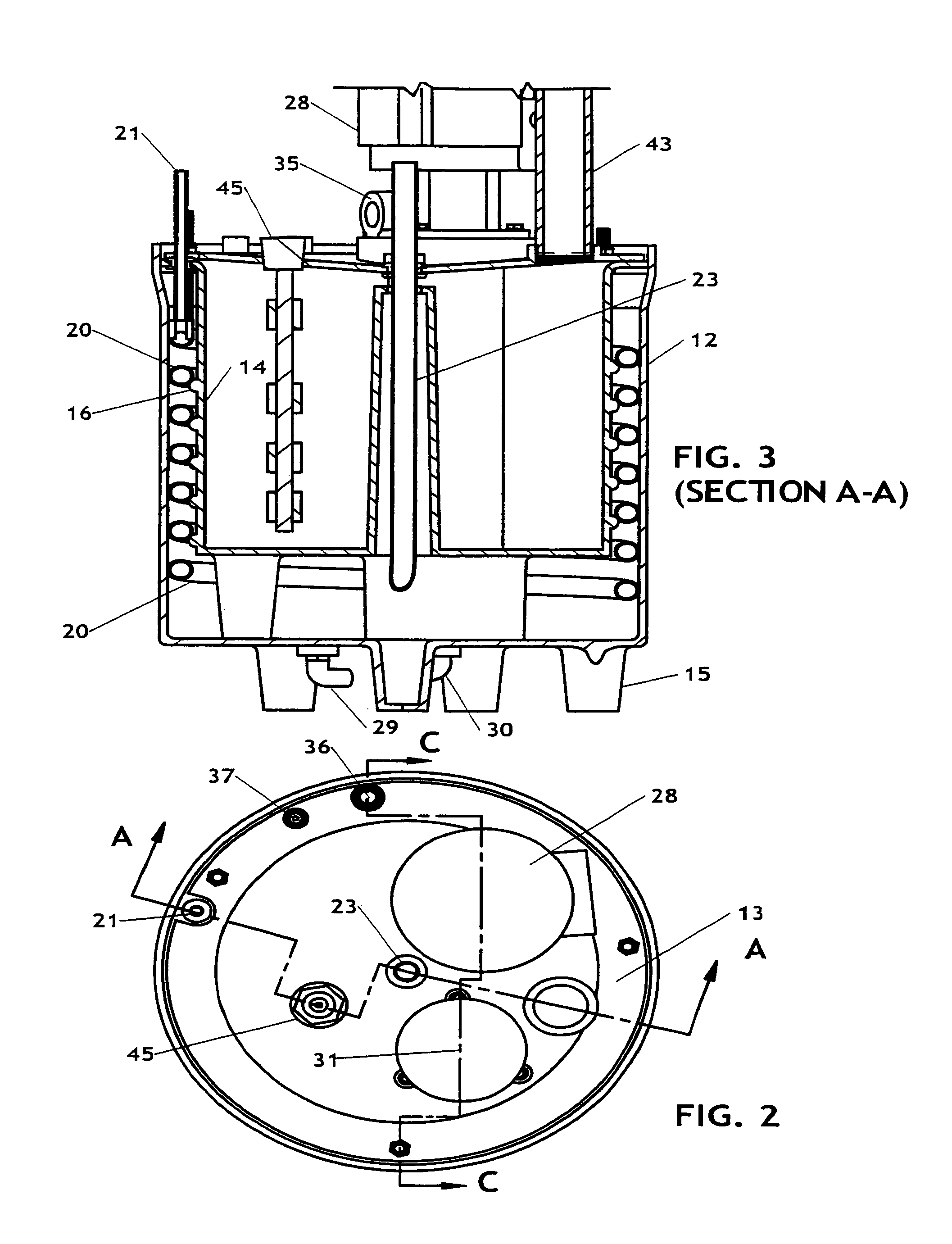Heat exchanger and temperature control unit
a technology of heat exchangers applied in the field of heat exchanger systems and temperature control units, can solve the problems of increasing the demands of heat exchangers and the temperature control units that utilize them, insufficient heat exchangers that are currently available, and insufficient to meet the needs and goals of current developments and technology, and achieves the effects of maximizing thermal exchange efficiency, long path length, and large surface area
- Summary
- Abstract
- Description
- Claims
- Application Information
AI Technical Summary
Benefits of technology
Problems solved by technology
Method used
Image
Examples
Embodiment Construction
[0022]FIGS. 1-9 are perspective and cross-sectional views of a heat exchanger 10 in accordance with the invention, utilizing a volumetric arrangement including an outer tank 12 of generally cylindrical form. The outer tank 12 has a closed bottom wall and a top edge with a circumferential rim enclosed by a top plate 13. A radial space of predetermined size, established generally by the diametral dimensions of a refrigerant tubing to be inserted between them, is established between the inner wall of the outer tank 12 and the outer wall of an inner tank 14 which is concentric therewith and nested therein. The radial gap is slightly greater than ¾″ in this example. The tanks 12, 14 are generally concentric about a central axis (shown vertical in the Figures), and the unit rests on a number of hollow feet 15 in the bottom walls. The feet 15 may be filled with foam or otherwise internally filled.
[0023]The outer surface of the inner tank 14 includes a helical peripheral ridge 16 that exten...
PUM
 Login to View More
Login to View More Abstract
Description
Claims
Application Information
 Login to View More
Login to View More - R&D
- Intellectual Property
- Life Sciences
- Materials
- Tech Scout
- Unparalleled Data Quality
- Higher Quality Content
- 60% Fewer Hallucinations
Browse by: Latest US Patents, China's latest patents, Technical Efficacy Thesaurus, Application Domain, Technology Topic, Popular Technical Reports.
© 2025 PatSnap. All rights reserved.Legal|Privacy policy|Modern Slavery Act Transparency Statement|Sitemap|About US| Contact US: help@patsnap.com



